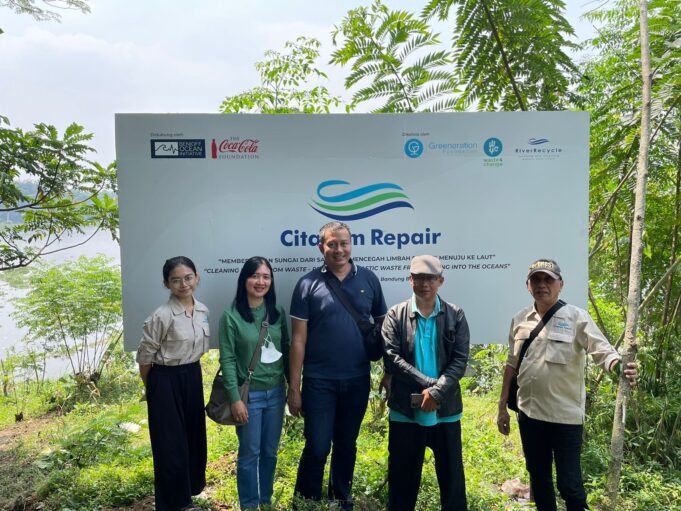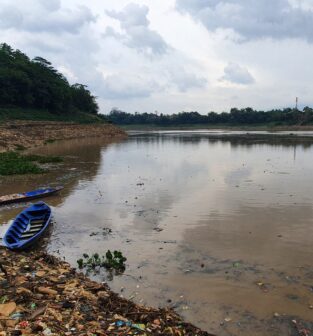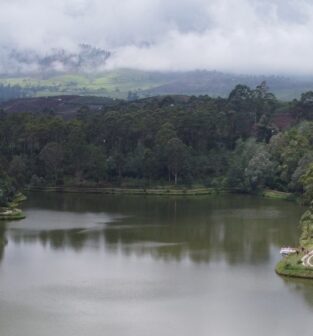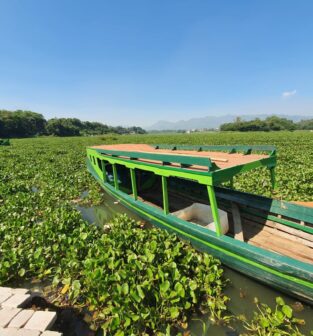Citarum River, Indonesia
Project lead: Greeneration Foundation
Introduction
The Citarum River is the longest river in West Java, Indonesia, stretching 297 kilometers before reaching the Java Sea. Archaeological artifacts reveal that human civilizations have flourished here dating back to the 4th century BCE. Today, over five million people live in the river basin, and the river itself provides water, electricity, and irrigation to more than 25 million people.
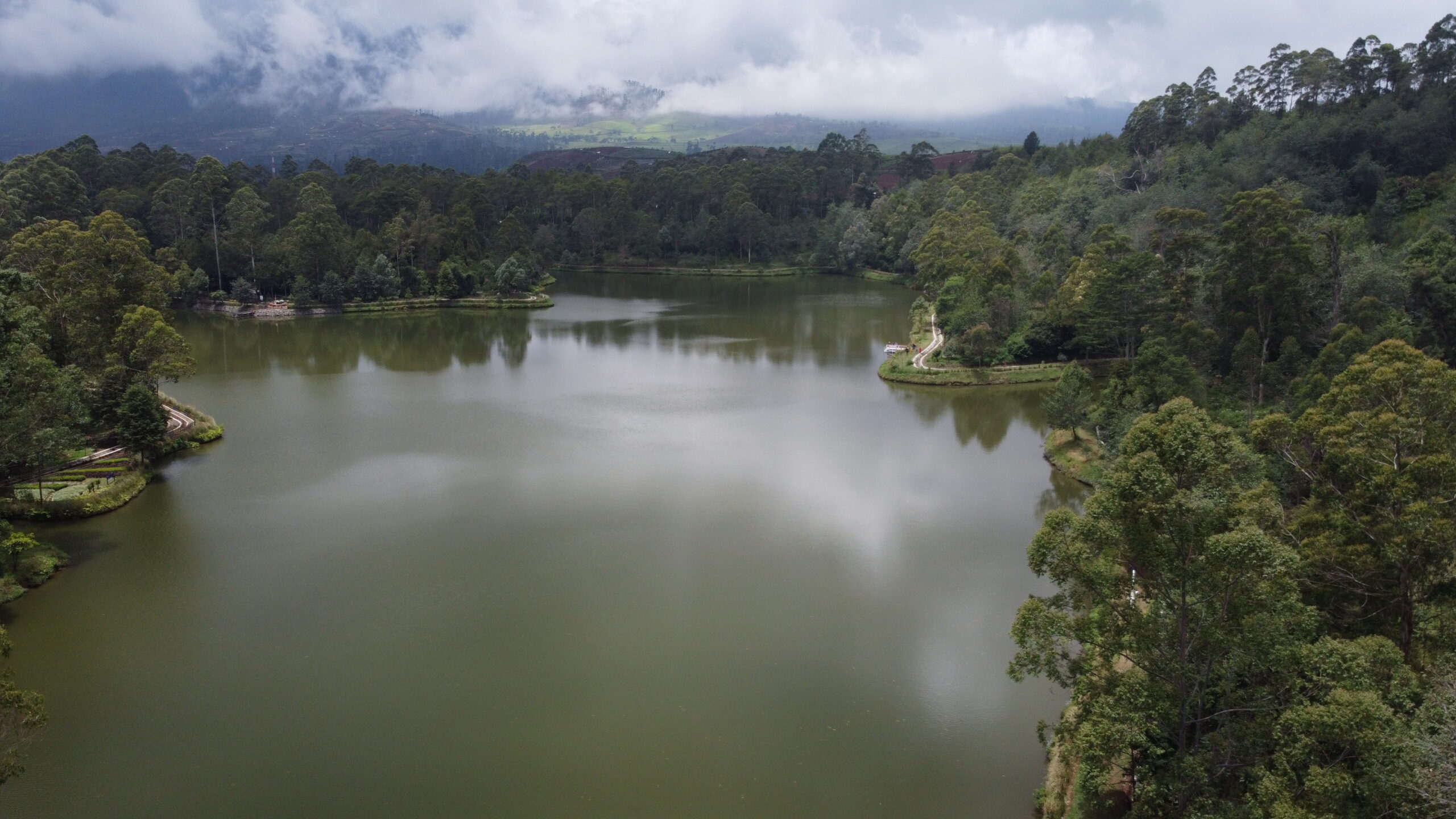
Sadly, the Citarum River is also known as the “world’s most polluted river.” Plastic, trash, and industrial waste pollute this historic river. In some places, the surface of the river is invisible beneath a layer of floating garbage and invasive plants. Local waste pickers generate income by collecting the valuable waste, but this informal economy is unable to make up for the limited waste management infrastructure in the region. Cleaning the Citarum River has become a priority for the local and national governments. In 2011, the Indonesian government began a river revitalization project with the goal of returning the whole river to clean drinking water status. It is estimated that a clean Citarum River will bring over USD $280 million a year in benefits to Indonesia.
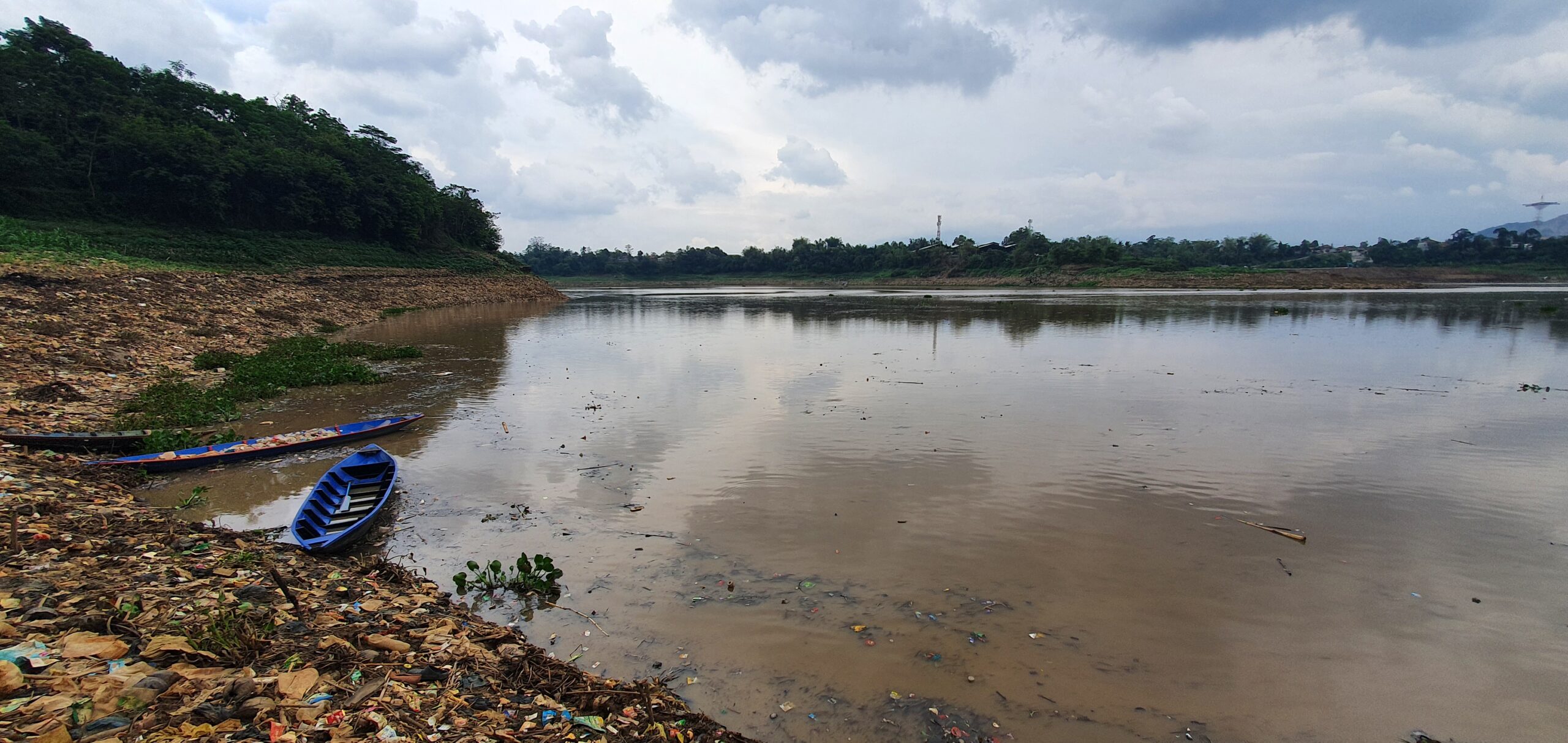
Greeneration Foundation and its partners RiverRecycle and Waste4Change are working to clean and restore the Citarum River in their project “Citarum Repair”.
Intervention Plan
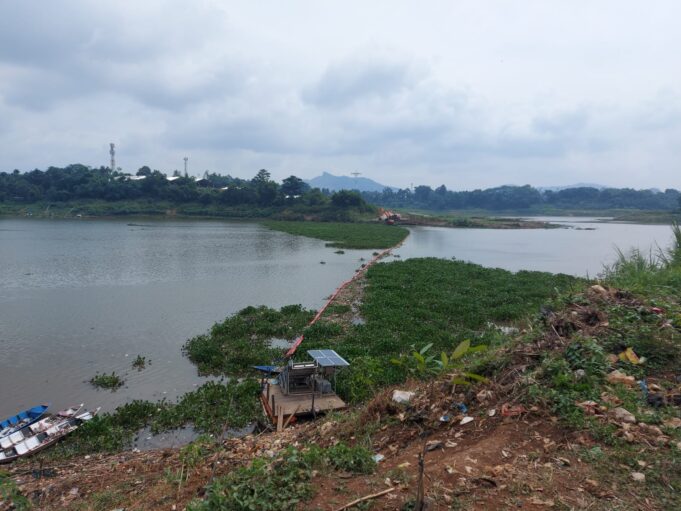
Greeneration Foundation, RiverRecycle, and Waste4Change operate a plastic capture system in the Citarum River near Bandung, the capital of West Java, a location infamous for waste that accumulates before the Saguling Dam Intake in Cihampelas Village, West Bandung Regency. The system, created by RiverRecycle, consists of a floating boom with active concentration modules to guide the plastic and other waste to one side of the river. An automatic wheel and conveyor lift the waste out of the river where it is then transported to a nearby sorting station and can manage up to 1 ton of river waste per day.
Once the removed waste is sorted and weighed, the hard plastics are delivered to a local recycling facility. The waste in the river is often commingled with large amounts of organic material due to overwhelming seasonal blooms of invasive water hyacinth plants. The project is creating value from these water hyacinths by providing them to local artists, who then dry the plants and use them to create handicrafts such as woven baskets.

Community Engagement
Led by Greeneration Foundation, the project’s communications strategy emphasizes three primary messages:
- The dangers of plastic pollution;
- The local urgency and extent of the problem, based on data and key findings from the plastic capture system;
- The improvement of waste management practices and eliminating the problem at its source.
Community engagement activities focus on three main audiences: government, local communities along the river, and the general public. From the government side, this project collaborates with the Indonesian National Army—the Citarum Harum Task Force—to educate the people and industries who live and operate near the Citarum River. The Citarum Harum team focuses on responsible waste management in the industrial sector and the Greeneration Foundation educates the local community about the dangers of plastic pollution in the Citarum River.

In addition, the team is engaging local communities through a series of small group workshops with active involvement from community leaders. The workshops are designed to raise awareness surrounding plastic pollution and build waste management capacity and are tailored to the existing knowledge and attitudes of the participants. Thus far, the Citarum Repair project has directly educated over 5,000 people. Beginning in 2020, the team has hosted annual webinars to facilitate discussion between academics, practitioners, and the general public about the waste problem in the Citarum River with more than 800 participants.
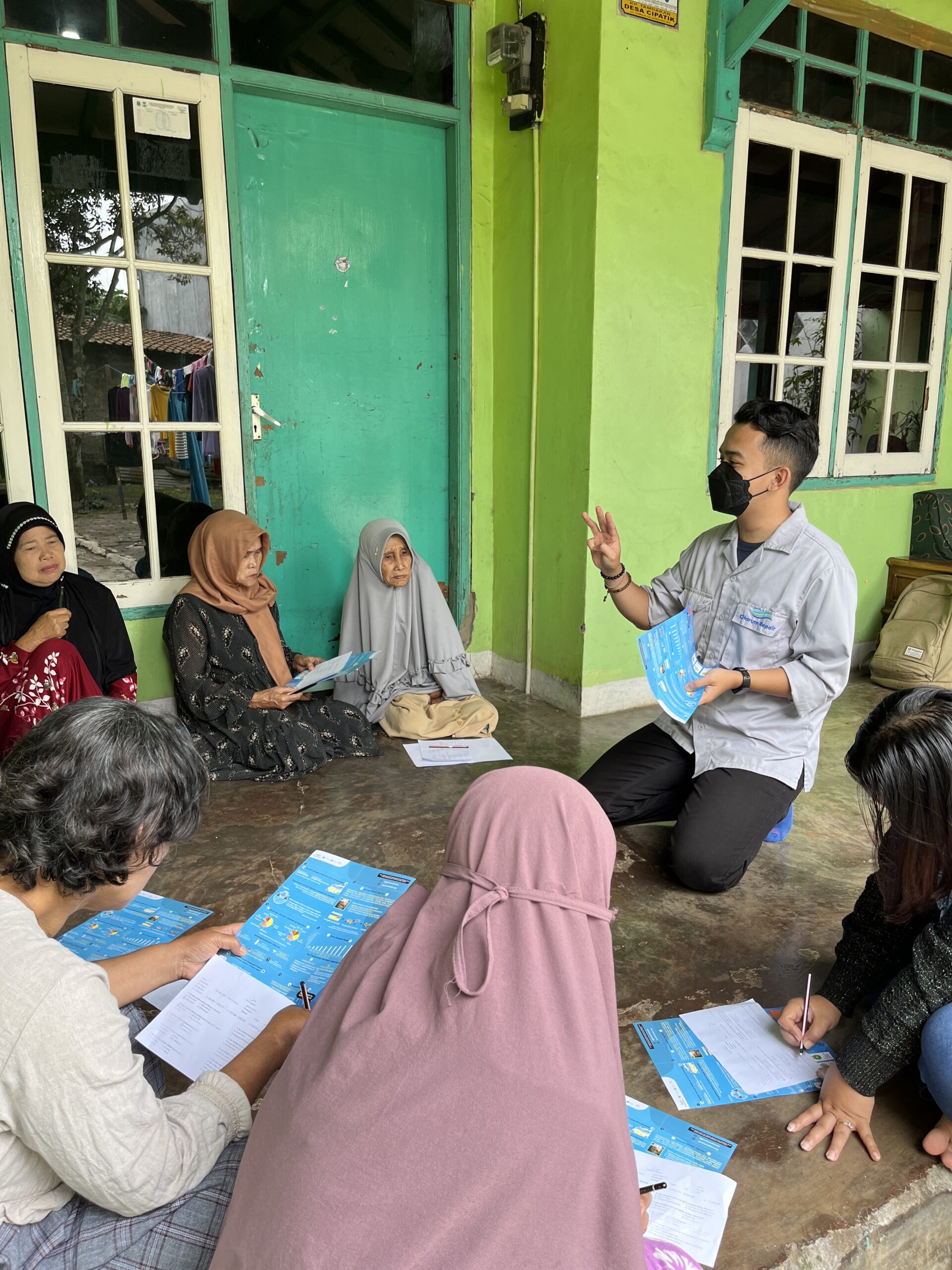
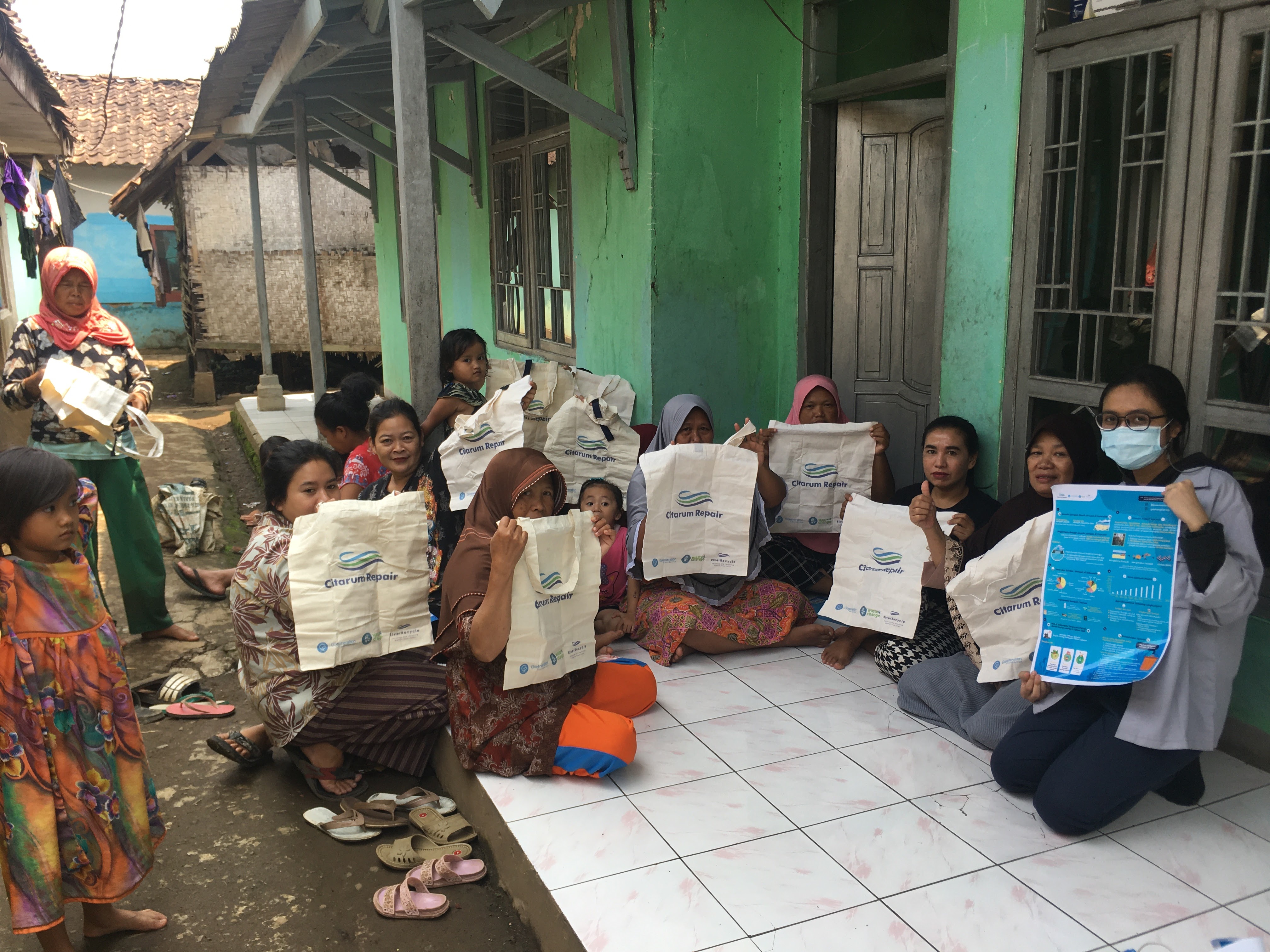

Greeneration Foundation is also leveraging its online data platform to provide data on waste that has been captured and managed. The project has created jobs for 10 local community members and empowered the local organization Bening Saguling Foundation to jointly solve the problem of waste in the Citarum River.

The Citarum Repair project adheres to the principles of environmental justice and acknowledges that many problems are caused by plastic and industrial pollution. In the Citarum River, damage to water quality makes it difficult for the local community to access clean water from the river and plastic pollution causes major flooding which results in extreme hardships for people living downstream. This project aims to reduce these environmental injustices by reducing plastic pollution in the river and educating the public about responsible household waste management. A clean Citarum River will lead to a dramatic improvement in the standard of living of the people in its vicinity.
The Team
 Greeneration Foundation is an NGO based in Bandung, Indonesia, focused on utilizing adaptive creative media to change human behavior and implement sustainable consumption and production in Indonesia. Greeneration Foundation engages with governments, environmental organizations, and communities to accomplish this goal. Riverrecycle is a Helsinki, Finland-based company with several offices in Southeast Asia and is the technical expert on the project. RiverRecycle designed the project’s river plastic capture system and developed the “river cleaning as a free service” business model. Waste4Change are waste management experts operating in Indonesia and oversee the project operation and data collection.
Greeneration Foundation is an NGO based in Bandung, Indonesia, focused on utilizing adaptive creative media to change human behavior and implement sustainable consumption and production in Indonesia. Greeneration Foundation engages with governments, environmental organizations, and communities to accomplish this goal. Riverrecycle is a Helsinki, Finland-based company with several offices in Southeast Asia and is the technical expert on the project. RiverRecycle designed the project’s river plastic capture system and developed the “river cleaning as a free service” business model. Waste4Change are waste management experts operating in Indonesia and oversee the project operation and data collection.
Interested in supporting Greeneration Foundation’s work in Indonesia? Donate here
